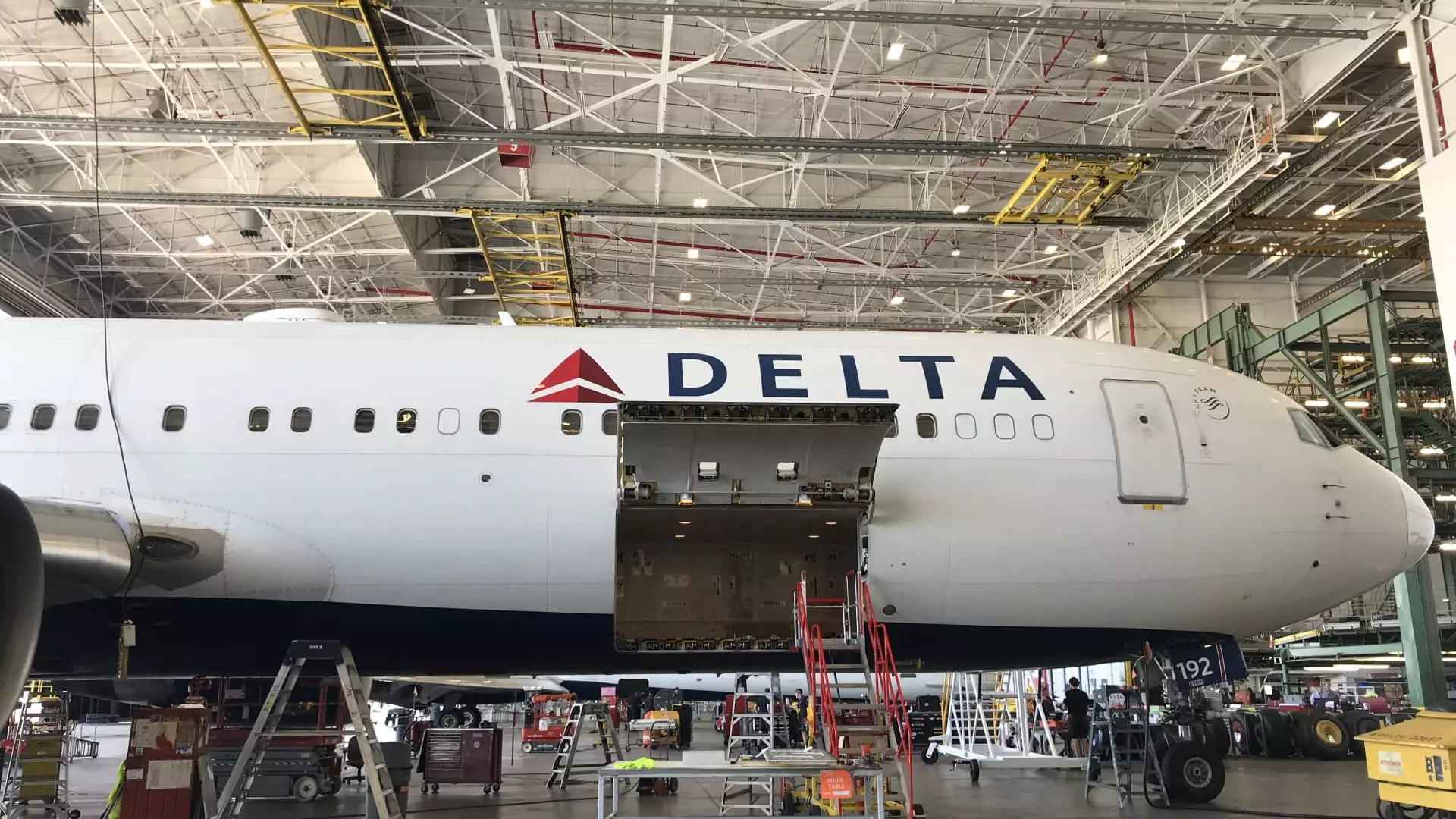Delta Air Lines, one of the major players in the American aviation industry, is projecting a growth in earnings for the fourth quarter of the year. As revealed in a recent announcement, strong consumer demand for travel and robust holiday bookings have contributed to the airline’s optimistic stance. The Atlanta-based carrier is forecasting adjusted earnings between $1.60 and $1.85 per share, surpassing the Wall Street expectation of $1.71. Compared to the previous year’s adjusted earnings of $1.28 per share, Delta is poised to show significant improvement, indicating a resilient travel market even during uncertain economic times.
Despite the positive projection, Delta has signaled some concerns surrounding potential disruptions in revenue generation due to external factors, particularly the upcoming U.S. presidential election on November 5. CEO Ed Bastian articulated expectations of “choppiness” in consumer sentiment traditionally associated with election cycles. He emphasized that consumers might become hesitant in making discretionary spending decisions as the political landscape evolves. This cautionary note serves as a reminder of the volatile interplay between broader socio-political conditions and consumer behavior in the travel industry.
Delta’s financial performance in the third quarter presented a mixed picture. The airline reported adjusted earnings per share of $1.50, which, while close to the expected $1.52, fell short of forecasted revenues of $14.67 billion—achieving $14.59 billion instead. A significant factor influencing this performance was the impact of a CrowdStrike outage that occurred in July, which hampered Delta’s operations severely, leading to thousands of flight cancellations and a substantial revenue loss estimated at $380 million. Bastian has been vocal about pursuing compensation from CrowdStrike and Microsoft for the fallout from this technical incident, which he believes warrants a thorough review and restitution.
While the challenges brought on by the outage are notable, Delta’s net income did experience a 15% rise year-over-year, amounting to $1.27 billion. This growth reflects the underlying demand for air travel and highlights Delta’s resilience. The revenue from passenger travel remained stable, while premium services continued to exceed expectations, showcasing an ongoing trend where consumers are willing to invest in higher-tier offerings despite economic pressures.
As Delta approaches the final quarter of the year, it aims to adapt strategically. The airline’s management estimates a 3% to 4% growth in capacity, aiming to meet the rising consumer demand during the holiday season. This cautious but forward-looking strategy is indicative of the broader trends in the airline industry, where supply chain rationalization is gradually resolving previous overcapacity issues in domestic routes. Such dynamics provide Delta with a promising landscape as it navigates the complexities of the current economic climate.
Looking further ahead, Delta has maintained its full-year adjusted earnings outlook of $6 to $7 per share, a figure that intentionally excludes the ramifications of the CrowdStrike incident. The airline’s ability to deliver strong results despite the setbacks underscores a commitment to recovery and growth.
The current trajectory of Delta Air Lines speaks to the resilience of the airline industry at large. As consumer habits continue to evolve in response to both external economic forces and changing travel preferences, airlines like Delta must remain agile and responsive to new challenges. The emphasis on premium services reflects a broader market trend where differentiated experiences are becoming increasingly sought after by a recovering clientele.
While Delta faces potential revenue fluctuation due to upcoming political events and lingering effects from operational difficulties, the air carrier’s robust holiday bookings and strategic capacity expansion position it favorably as it prepares for another busy travel season. Moving into 2025, the airline’s forecasting seems to be grounded in both historical performance and current market trends, paving the way for potential long-term sustainability and profitability.

